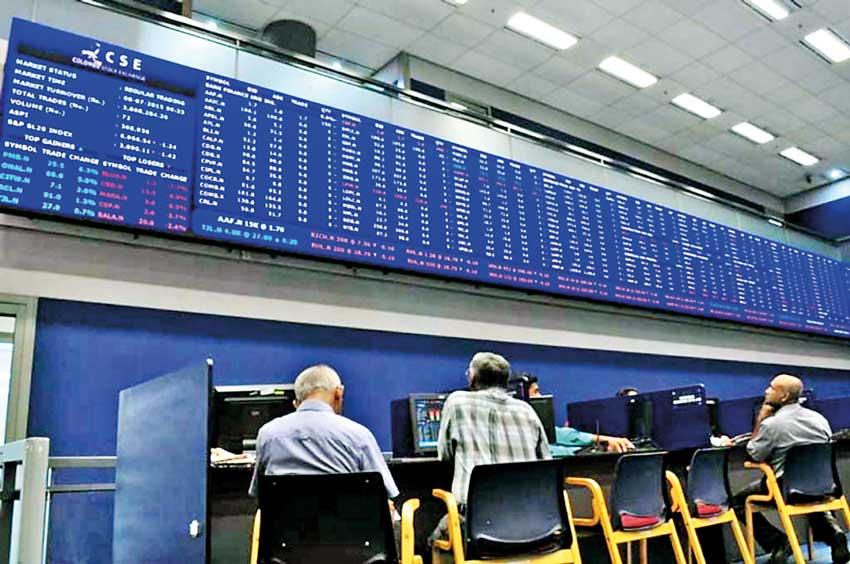14 Jan 2021 - {{hitsCtrl.values.hits}}

 The immediate implication of Demutualisation is that the process seeks to give majority control of the Stock Exchange to the investors who may not have trading rights.
The immediate implication of Demutualisation is that the process seeks to give majority control of the Stock Exchange to the investors who may not have trading rights.
The immediate benefit is that it dispels the perception amongst the investors that since the Stock Exchange was being run by brokers, it was open to manipulation and insider trading due to the governance structure where the members of the club enjoyed rights of ownership of the Stock Exchange. Indeed, with the Exchange being demutualised, the question of conflict of interest with the brokers would not arise.
As is the case for most Exchanges in the Region, the Colombo Stock Exchange (“CSE”) is also a company limited by Guarantee, which is mutually owned by founder stock broking firms. In 2018, the CSE embarked on a transformation when the Cabinet approved Demutualisation of the Colombo Stock Exchange Bill issued on February 1, 2018 (Gazette Part II of January 26, 2018) (“2018 Bill”).
The Securities and Exchange Commission of Sri Lanka (“SEC”) has proposed a Demutualisation process to transform the CSE into a commercial, more professionally run organization. The profit-oriented, Demutualised exchange will promote the introduction of new products and trading systems to be made permissible under the new SEC Act which will replace the existing Securities and Exchange Commission Act No. 36 of 1987, and establish the necessary supporting market infrastructure. Furthermore, a broader ownership base of the Exchange (as a public listed company) is critical in situations where exchanges need to raise funds for future investments.
At the same time, encouraging statements have been made by State Minister for Money and Capital Market and State Enterprise Reforms, Ajith Nivard Cabraal in relation to the Stock Exchange.
While, it appears that this is a dynamic time to bring investment into Sri Lanka through a Demutualised Stock Exchange, the main problem would be: who would buy shares in the Exchange during uncertain times as investors may be reluctant to invest because of the current global economic conditions due to the pandemic.
Effects of Demutualisation
Demutualisation is done differently by different exchanges. In some cases only trading rights are offered, while investors who wish to own shares in the exchange are not offered trading rights. On the flip side if more flexibility is given then both ownership and trading rights are offered.
Demutualisation in its strictest sense, refers to the change in legal status of the Stock Exchange from a mutual ownership structure with one vote per member, into a company limited by shares, with one vote per share. Stockbrokers would no longer be owners but customers of the Exchange and directors would be elected by shareholders and thus answerable to them.
However, at the same time it is important that upon the conversion of the Stock Exchange from a company limited by guarantee to a company limited by shares, the liability of each member of the Stock Exchange as a guarantor shall be deemed to be extinguished immediately. This is critical to ensuring confidence of the brokers.
In order to survive in today’s environment, exchanges need diversity and to move towards commercially oriented business practices with greater focus on improving efficiency, accessibility and ease of use of their systems.
The capital market in Sri Lanka has not been effective in channeling the country’s savings to support investment in the economy, however, a Demutualised Exchange could attract outside investment and further expand its current technology platforms and broaden its product and service offerings.
Shortcoming in the 2018 Bill
The 2018 Bill stipulated allocation of 60 percent of the shares to be issued to the full members (stock brokers) and 40 percent to the Capital Market Development Fund to be incorporated as a Company limited by Guarantee.
The original 2018 Bill fails to take into account potential investment by a strategic investor and financial institutions whereby a significant percentage of minority or even majority shares are allocated to such a strategic investor, which can be a foreign stock exchange or depository company.
A critical component of Sri Lanka’s demutualisation exercise could be the introduction of a foreign investor as a strategic stakeholder, which would eventually lead to cross-border equity capital market activity and would send a positive message about the demutualised CSE to international investors.
This shall create potential for cross-border issuance where a potential foreign partner can list their products in Sri Lanka and vice versa.
Such gaps in the aforementioned 2018 Bill will not assist in developing strategic change or capital market growth in Sri Lanka and the benefits of demutualisation may be thwarted.
The drafters of the new law shall also have to give careful consideration to the form of ownership of the Demutualised Exchange, such as whether there should be any restrictions in the form of ownership, such as percentage limits or foreign ownership restrictions. At present, Section 8 of the 2018 Bill imposes restrictions on the members ability to issue the 60 percent shares.
There is a ceiling of 5 percent maximum ceiling for each individual member in respect of the shares to be issued. While, this appears to be the case to avoid stock exchanges operating in special or limited interests, this will not allow any foreign investor to acquire a strategic stake in the Exchange.
The 2018 Bill is also silent on the ability of the investors to sell their shareholding to any other investor albeit with the prior approval of the SEC. Moreover, there is no minimum holding period in relation to the shareholding in a Stock Exchange by a strategic investor or a financial institution. Correspondingly, the Bill is also silent on the ability of the existing investor to acquire further shares of the Exchange.
The way forward
The Cabinet in October 2020 gave their consent to introduce a new SECAct that seeks to update existing regulations and modernize functions of the CSE, giving the SEC more powers. The new SEC Act comes at a time when the stock market has shown resilience to not only bounce back to pre-COVID closure, but has also progressed further. It appears that the demutualisation will follow once the new SEC Act has been introduced.
Modern technology and telecommunication have enabled issues and investors to access foreign capital markets in today’s pluralistic world, and as such a demutualised CSE shall face meaningful competition from exchanges in distant places, which may broaden and enhance its ability to raise outside capital for technology innovation, product development and other critical initiatives.
Demutualisation will allow the CSE to unlock its equity value, enhance its business and partnership opportunities and position the Exchange to become more responsive to customer needs.
Currently the Exchange may be perceived to be the domain of stockbrokers, although in reality, it may not be so. Demutualisation will therefore dispel this notion. Once demutualised, what it will mean to market users is that the Exchange will represent all stakeholders and not be skewed towards one stakeholder group.
Conclusion
Indeed, the overall objective of Demutualisation of the CSE is to increase efficiency, capitalization and governance. In order to achieve this objective, one of the key questions to answer will be: who can be or will be interested to become the owner of the Exchange.
The government should also give serious consideration to a strategic investor such as international exchange operator and determine its feasibility and desirability. The Government could examine other Demutualised Exchanges in South Asian countries where international exchange operators have successfully been given significant ownership in the Exchange.
(The writer is a Barrister at Law)
24 Dec 2024 57 minute ago
24 Dec 2024 2 hours ago
24 Dec 2024 2 hours ago
24 Dec 2024 4 hours ago
24 Dec 2024 4 hours ago